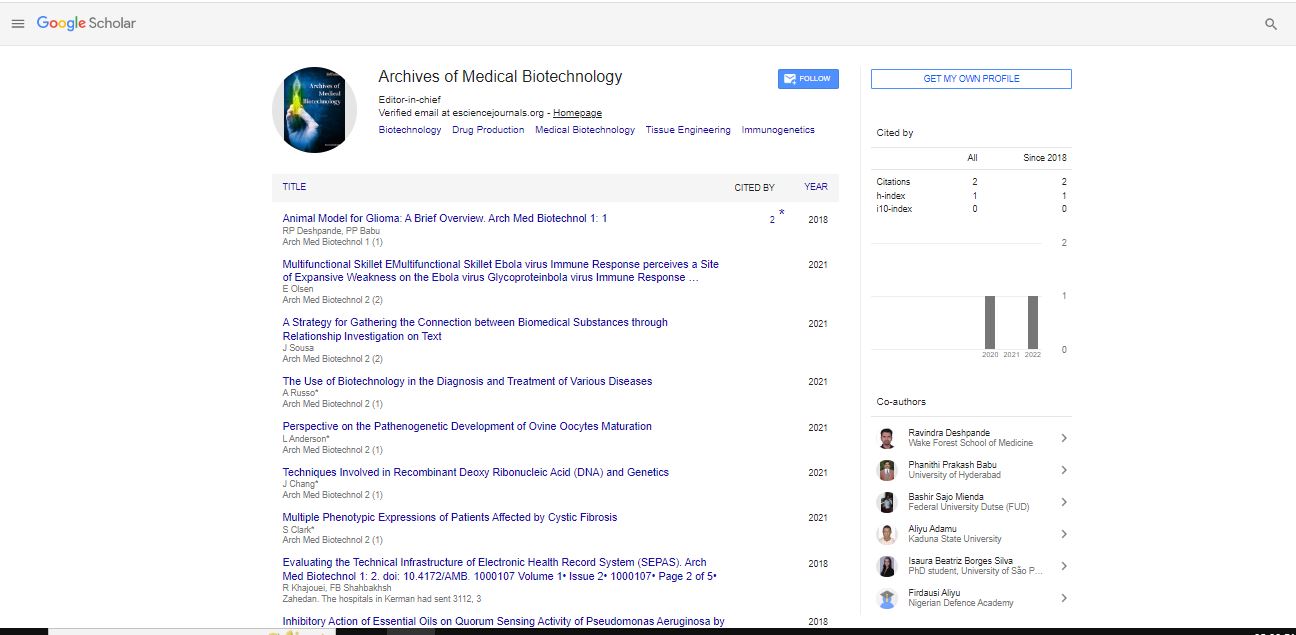Indigenous hydrocarbon-degrading salt-tolerant bacterial strain Pseudomonas mendocina isolated from seawater and marine sediments of Oran harbor, Northwestern Algeria
Faiza Bendadeche, Mohamed Bey Baba Hamed and Sidi Mohammed El Amine Abi Ayad
University of Oran 1 Ahmed Ben Bella, Algeria
: Arch Med Biotechnol
Abstract
Petroleum hydrocarbons are xenobiotiques pollutants of great concern for their persistent toxicity, carcinogenicity and difficult elimination. Microorganisms play a significant role in the bioremediation of petroleum contaminants. In our study, crude oil-degrading bacterial strain SP57N was isolated using Bushnell-Hass salt medium, from the contaminated marine sediments and seawater at the harbor of Oran, northwestern Algeria. Identified as Pseudomonas mendocina by sequencing and analyzing partial 16S rDNA, using the BLAST program on the NCBI website, This strain could support high concentrations of crude oil (up to 10%, v/v). The effects of salt concentration, pH and temperature on rate growth rate of strain SP57N, in BHSM medium supplemented with 2% (v/v) of crude oil as sole carbon and energy source, were studied. The results show that maximum growth rate was obtained at 3% (w/v) of NaCl, pH 7and temperature 25°C, at 140 rpm. Furthermore, Pseudomonas mendocina could effectively utilize crude oil as its sole carbon and energy source. Thus, Pseudomonas mendocina SP57N could be useful for the bioremediation of harbor of Oran, as an excellent degrader to develop one eco-friendly and cost-effective method, as a native bacteria, and marine environments polluted by oil and petroleum hydrocarbons, and for biotechnological applications.
Biography
Faiza Bendadeche is currently working as a professor in University of Oran, Algeria. She attended many national and international conferences and seminar. Her work has been published in many reputed international and national journals
E-mail: Ben.Faiza.aqua@hotmail.fr
 Spanish
Spanish  Chinese
Chinese  Russian
Russian  German
German  French
French  Japanese
Japanese  Portuguese
Portuguese  Hindi
Hindi 